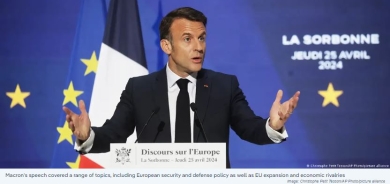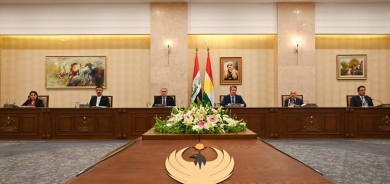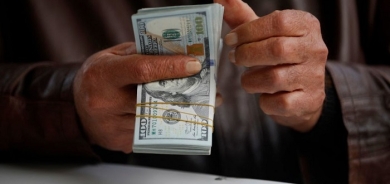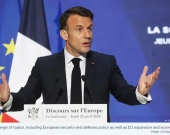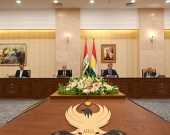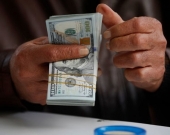Reactions to the COP26 climate deal: From 'not enough' to 'lifeline' to 'blah, blah, blah'
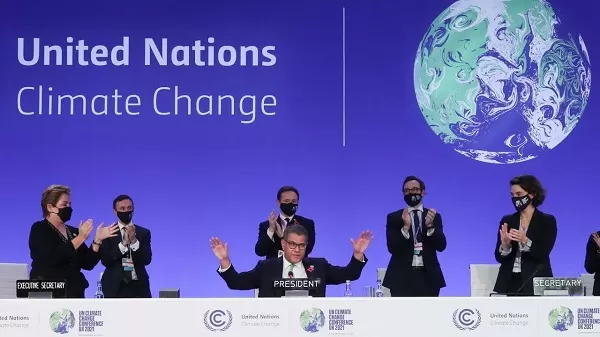
UN Secretary General Antonio Guterres warned of an impending “climate catastrophe” while environmental campaigner Greta Thunberg dismissed Saturday’s COP26 climate conference deal as “blah, blah, blah”. After last-minute drama in Scotland to clinch an agreement, even those who welcomed the deal in Glasgow said a huge amount of work remained to be done.
UN chief Guterres acknowledged the shortcomings of the agreement in a statement following the deal reached on Saturday evening at the Glasgow conference.
“The #COP26 outcome is a compromise, reflecting the interests, contradictions and state of political will in the world today,” he tweeted. “It’s an important step, but it’s not enough.”
“Our fragile planet is hanging by a thread,” he warned, adding: “We are still knocking on the door of climate catastrophe.”
In a follow-up tweet, the UN chief sent a message to “young people, indigenous communities, women leaders, all those leading on #ClimateAction”. “I know you might be disappointed," he wrote. "But we’re in the fight of our lives & this fight must be won."
COP26 climate deal is 'a clear betrayal of the millions suffering from climate crisis'
Thunberg, arguably the world’s best-known environmental campaigner, was more blunt in her assessment: “The #COP26 is over,” she tweeted. “Here’s a brief summary: Blah, blah, blah. But the real work continues outside these halls. And we will never give up, ever.”
During the conference, Thunberg and other activists had denounced the way it was playing out, arguing that world leaders had failed to match their words with real action.
‘Hard work ahead’
British Prime Minister Boris Johnson remained relatively upbeat. “There is still a huge amount more to do in the coming years,” Johnson said.
“But today’s agreement is a big step forward and, critically, we have the first ever international agreement to phase down coal and a roadmap to limit global warming to 1.5 degrees.”
A European Commission statement said the deal kept the targets of the 2015 Paris climate agreement alive, “giving us a chance of limiting global warming to 1.5 degrees Celsius”.
Commission President Ursula von der Leyen said delegates to the conference made progress on commitments to cut back on dangerous emissions, and on raising $100 billion a year to help developing and vulnerable countries.
“But there will be no time to relax: there is still hard work ahead,” she added.
Last-minute drama
There was last-minute drama in Glasgow as India, backed by China and other coal-dependent developing nations, rejected a clause calling for the “phase out” of coal-fired power. After a huddle between the envoys from China, India, the United States and European Union, the clause was hurriedly amended to ask countries to “phase down” their coal use.
In recent days, the Australian government vowed to sell coal for decades to come. But Kevin Rudd, Australia’s former prime minister and now the president of the Asia Society, remained hopeful.
“While the official text might have stopped short of agreeing to phase out coal, the statements made by world leaders in Glasgow leave no doubt that coal is on its way to being consigned to history.”
The single-word change on coal was met with dismay by both rich countries in Europe and small island nations along with others still developing.
“We believe we have been sidelined in a non-transparent and non-inclusive process,” Mexico’s envoy Camila Isabel Zepeda Lizama said. “We all have remaining concerns but were told we could not reopen the text … while others can still ask to water down their promises.”
But Mexico and others said they would let the revised agreement stand.
‘Deeply sorry’
Reaching a deal was always a matter of balancing the demands of climate-vulnerable nations, big industrial powers, and those like India and China depending on fossil fuels to lift their economies and populations out of poverty.
COP26 president Alok Sharma’s voice broke with emotion in response to vulnerable nations’ expressing anger over the last-minute changes.
“I apologise for the way this process has unfolded,” he told the assembly. “I am deeply sorry.”
The overarching aim he had set for the conference was one that climate campaigners and vulnerable countries said was too modest – to “keep alive” the 2015 Paris Agreement’s target to keep global temperatures from rising beyond 1.5°C above pre-industrial levels. Scientists say warming beyond this point could unleash irreversible and uncontrollable climate impacts.
In asking nations to set tougher targets by next year for cutting climate-warming emissions, the agreement effectively acknowledged that commitments were still inadequate. National pledges currently have the world on track for about 2.4°C of warming.
The talks also led to a breakthrough in resolving rules for covering government-led markets for carbon offsets.
Companies and countries with vast forest cover had pushed hard for a deal, in hopes also of legitimising the fast-growing global voluntary offset markets.
The deal allows countries to partially meet their climate targets by buying offset credits representing emission cuts by others, potentially unlocks trillions of dollars for protecting forests, expanding renewable energy and other projects to combat climate change.
‘Era of coal is ending’
Jennifer Morgan, executive director of the campaign group Greenpeace, saw the glass as half-full.
“They changed a word but they can’t change the signal coming out of this COP, that the era of coal is ending,” she said. “If you’re a coal company executive, this COP saw a bad outcome.”
Developing countries argue rich nations, whose historical emissions are largely responsible for warming the planet, must finance their efforts both to transition away from fossil fuels and to adapt to increasingly severe climate impacts.
The deal offered a promise to double adaptation finance by 2025 from 2019, but again no guarantees. A UN committee will report next year on progress towards delivering the $100 billion per year in promised climate funding, after rich nations failed to deliver on a 2020 deadline for the funds. Finance will then be discussed again 2024 and 2026.
But the deal left many vulnerable nations despondent in offering no funding for climate-linked losses and damages, a promise made in the original pact called the UN Framework Convention on Climate Change in 1992.
Rich nations once again resisted acknowledging financial liability for their years of emissions that drove climate change as they rose to economic prosperity.
While Glasgow agreement laid out a pathway for addressing the issue by establishing a new secretariat dedicated to the issue, vulnerable countries said that represented a bare minimum of acceptability.
“This package is not perfect. The coal change and a weak outcome on loss and damage are blows,” said Tina Stee, climate envoy from the Marshall Islands. Still, “elements of the Glasgow Package are a lifeline for my country. We must not discount the crucial wins covered in this package”.
(FRANCE 24 with AFP, REUTERS)


